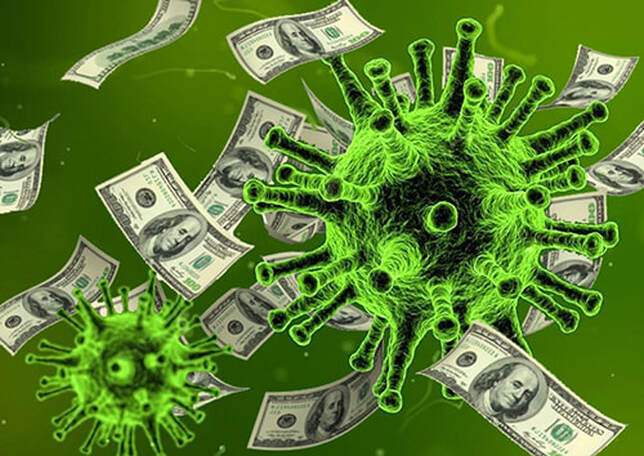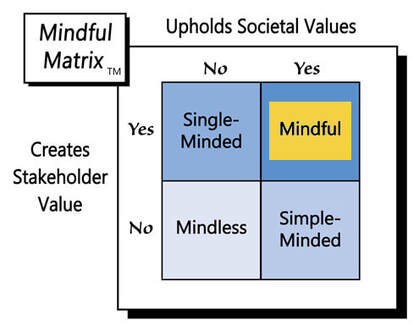One of the ‘sickest’ cases has involved two entrepreneurial brothers from Tennessee. When Matt and Noah Colvin heard of the first U.S. death from coronavirus, they quickly began buying all the hand sanitizer and antibacterial wipes they could find—around Chattanooga, across Tennessee, and throughout Kentucky.
After emptying stores of the valuable virus-fighting products, they piled palettes of their pillage in a garage and began selling the items online for a premium: between $8 and $70 each for the first 300 bottles of hand sanitizer M. Colvin listed on Amazon.
The gig lasted for about a day before “Amazon pulled his items and thousands of other listings for sanitizer, wipes and face masks” and “eBay soon followed with even stricter measures.” The retailers’ swift actions and accusation of price gouging left Colvin sitting on over 17,000 bottles of sanitizer he couldn’t sell, even as people around the world were desperate to get their hands on the products and the product on their hands.
Was Colvin “profiteering from a pandemic,” or were Amazon and eBay unnecessarily constraining capitalism? Colvin claimed he provided a “public service” by exploiting market inefficiencies and redistributing products to other parts of the nation where they were needed more.
Could he be right? Perhaps he was improving the supply chain. Also, how different were his actions than someone making a significant purchase of a publicly-traded stock with the hope that their big investment will help push the security’s price upward?
First, it’s safe to assume that national and regional retailers like CVS and Walmart, with decades of logistics experience and cutting-edge supply chain processes, didn't need Colvin to help get products to places in the country where they’re in short supply. Furthermore, any person with an internet connection could conceivable buy hand sanitizer online and have it shipped directly to them, no matter where they live.
Second, there’s a big difference between playing the stock market and ‘playing the hand sanitizer market,’ especially in the face of a pandemic. People don’t need to own Apple, Tesla, or any other specific stock; however, Individuals do have to have products that can help them avoid contracting a serious illness that could kill them or someone they might infect.
The Colvin brothers’ actions were the epitome of “Single-Minded Marketing,” which quickly turned “Mindless” once Amazon pulled the plug on their online sales. Such blatantly selfish actions are pretty easy to diagnose, but what about the wide continuum of tactics other organizations have employed amid the outbreak?
Some emails that have hit my inbox within the last few days seem tone-deaf to health advisories that have asked us to forgo nonessential services, to practice social distancing, and to be extra careful with hand hygiene. Although less extreme than those of the Colvin brothers, these tactics also seem “Mindless”:
- Groupon: specials on Swedish massage, axe throwing, ice skating, and even “group bowling”
- Local Flavor: offers on experiences such as billiards, salt room, and climbing walls
- Bed Bath & Beyond: promotional copy reading, “Put a spring in your hosting game with fresh and EXCLUSIVE picks”; “Dazzle guests without breaking a sweat (or the bank)”
- Old Navy: ad image showing two women walking with arms wrapped tightly over the other’s shoulders while smiling at each other, with faces about eight inches apart
Meanwhile, certain other companies have shown healthier situational awareness by quickly adjusting their marketing communication from “Mindless” to “Mindful”:
- Coors: pulled its “Official beer of ‘working’ remotely” spots that lampooned the nation's annual loss of productivity during March Madness
- Hershey: removed ads that featured people shaking hands and hugging while sharing candy.
- KFC: pulled its ‘finger lickin’ ads in the UK
There’s also been an abundance of vibrantly “Mindful” correspondence from companies aimed at calming our anxieties by describing what they’re doing to keep employees and us safe:
- Enterprise: “Aligned with guidance from health authorities, we are implementing additional measures to clean and disinfect our locations and vehicles.”
- Chase: “We've ensured that our branches, including ATM screens and keypads, are cleaned daily with EPA-approved disinfectants and we have hand sanitizer available in our branches.”
- Best Buy: “The first [goal] is to protect our customers, employees and their families. The second is to do the best we can to serve the millions of Americans who are looking to us for increasingly vital technology tools to stay connected, as well as household necessities.”
- Office Depot: “We’ve reinforced existing Office Depot policy encouraging employees who exhibit flu-like symptoms to stay home and consult with a medical professional.”
Finally, a few firms have ascended to the highest level of corporate health and community consciousness by going above and beyond what might be expected even for “Mindful Marketing,” for instance:
- U-Haul is offering 30 days of free self-storage to students who need to move due to coronavirus.
- Highmark Blue Shield has waived all copays, deductibles, and coinsurance for 90 days for those with telemedicine access “because the safest place for you if you’re sick is at home.”
- Wiley is providing instructors and students who do not have an online learning solution free access to its courseware for the remaining spring 2020 term.
- Martin’s Famous Pastry Shoppe has increased production of its popular potato rolls and other bread products in order to keep stores stocked during periods of intense demand.
To unpack the last example, there are few things as anxiety-inducing as walking into a grocery store during a crisis, only to find shelves empty of bread, which may be the most staple of foods for Americans. However, people living in areas where Martin’s distributes can still find its products on their store’s shelves every day, even on Sunday. Scott Heintzelman, vice president of finance and administration for Martin’s explains:
“Almost no commercial bakeries deliver [Sunday]. However, our awesome bakery and transport teams have been working around the clock to make and move truckloads of extra product to our warehouses. The result is on Sunday morning, many of our amazing distributors and sales teams are out making deliveries to help feed people. I am truly humbled by our team members.”
As a writer, I should disclose that Martin’s is a faithful supporter of Messiah College, where I teach. Also, Heintzelman, who I call “Scott,” was my college roommate, the best man in my wedding, and still a best friend.
During this moment of nearly unprecedented uncertainty, many people probably feel like Martin’s and other firms that have gone above and beyond to meet important, life-sustaining needs are their best friends. It’s times like these when we really need friends, and when we can be especially grateful for organizations that practice “Mindful Marketing.”
Learn more about the Mindful Matrix and Mindful Meter.
Check out Mindful Marketing Ads and Vote your Mind!





 RSS Feed
RSS Feed